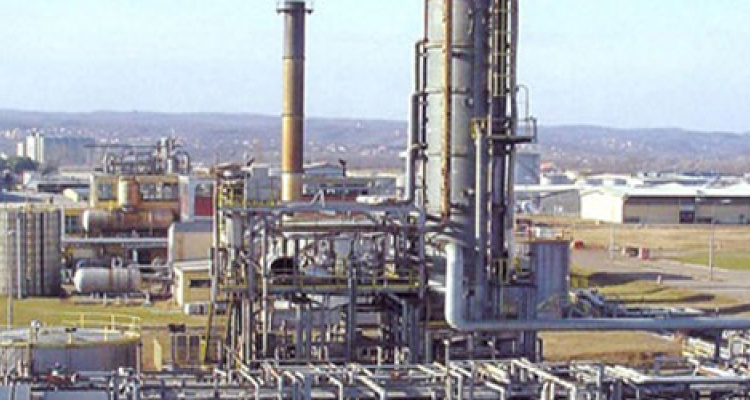
The Srpska Times
Modrica Refinery - Nearly 20,000 tonnes of lubricants sold
MODRIČA - In the course of 2012, Modriča Oil Refinery processed 64,000 tonnes of raw materials at the Oil Refinery in Brod and produced and placed on both the domestic and international markets nearly 20,000 tonnes of lubricants and functional fluids, says Pero Dugić, the Refinery CEO.
The Refinery’s main man points out that more than 65% of the produced quantities of engine oil, lubricants and functional fluids were placed on the foreign market, mostly in the countries of the former Yugoslavia, and a major amount (42% of exports) to the EU.
In an interview with Srna, Dugić underlines that the results achieved are by a few percent lower than planned, which is why the financial results are below expectations but still positive, and given the general financial situation in the world, this is not bad.
For the first time Modrica Oil Refinery was supplying oil, lubricants and functional fluids to all the mines and thermal power plants in Bosnia and Herzegovina, which improved the sales.
A good chunk of the Serbian market was maintained, and after more than two decades, the Refinery started to sell significant quantities of engine oil in Croatia again. They expect a growth in sales in Macedonia too, especially with the 2012 opening of a representative office and a retail centre in Skopje.
“In order to bring our products closer to customers, we’ve changed the packaging, which is now much more modern,” Dugić said and added that they also organised a high quality media campaign which resulted in notable sales growth.
Investments exceeded the amount of €6 million. Sources were invested in the new engine-oil manufacturing Blending plant, infrastructure facilities, laboratories and equipment, as well as the modernisation of a catering facility in Modriča, “Motel Majna”, the property of the Refinery.
Modrica Refinery continued to introduce new products, manufacturing in 2012 passenger vehicle engine oils Optima Eco and Optima Eco Plus, as well as commercial vehicle oils Maxima Euro 5 and Maxima E9.
The refinery developed the new generation engine oils intended for engines of modern vehicles that meet the requirements of the Euro 5 and Euro 6 emission regulations (exhaust gases free of harmful substances).
These engine oils’ features include low sulphur, phosphorus and ash content are and made of hydrocracked base oils produced in Nestro Group refineries of Bosnia and Herzegovina, that is, in the Brod-Modriča oil refinery complex.
Other features of these engine oils also include high oxidation stability, which allows very long periods between oil changes, high engine cleanliness, reduces the wearing of bearings, piston rings, hoist valves and other vital engine parts.
“The EU and global exhaust gas emission standards, increasing demands for fuel efficiency, and demands for longer intervals between oil changes – these are the main reasons why the Refinery’s engineers constantly develop new and improve the quality of the existing products,” said Dugić.
The Refinery also started producing engine oils for ship engines. Such oils are intended for ocean ships and smaller vessels and their engines which use heavy distillates with high sulphur content. It also produces oils for commercial vehicles that meet the requirements of the latest regulations – Ecro 6 and Maxima E9.
Due to the fall in the base oil prices on the global market, especially in the last quarter of 2012, the Refinery management decided to reduce the production in the near future, i.e. to halt the production of base oils in January, which will help save energy and reduce production costs.
“In 2013, Modriča Oil Refinery intends to produce 25,000 tonnes of lubricants and functional fluids and process 95,000 tonnes of base oils and mineral oils,” Dugić said, adding that the company employs 593 workers of whom 120 hold two-year college and university degrees, eight hold MA degrees and three hold PhD degrees.
(Agencije/Frontal)














